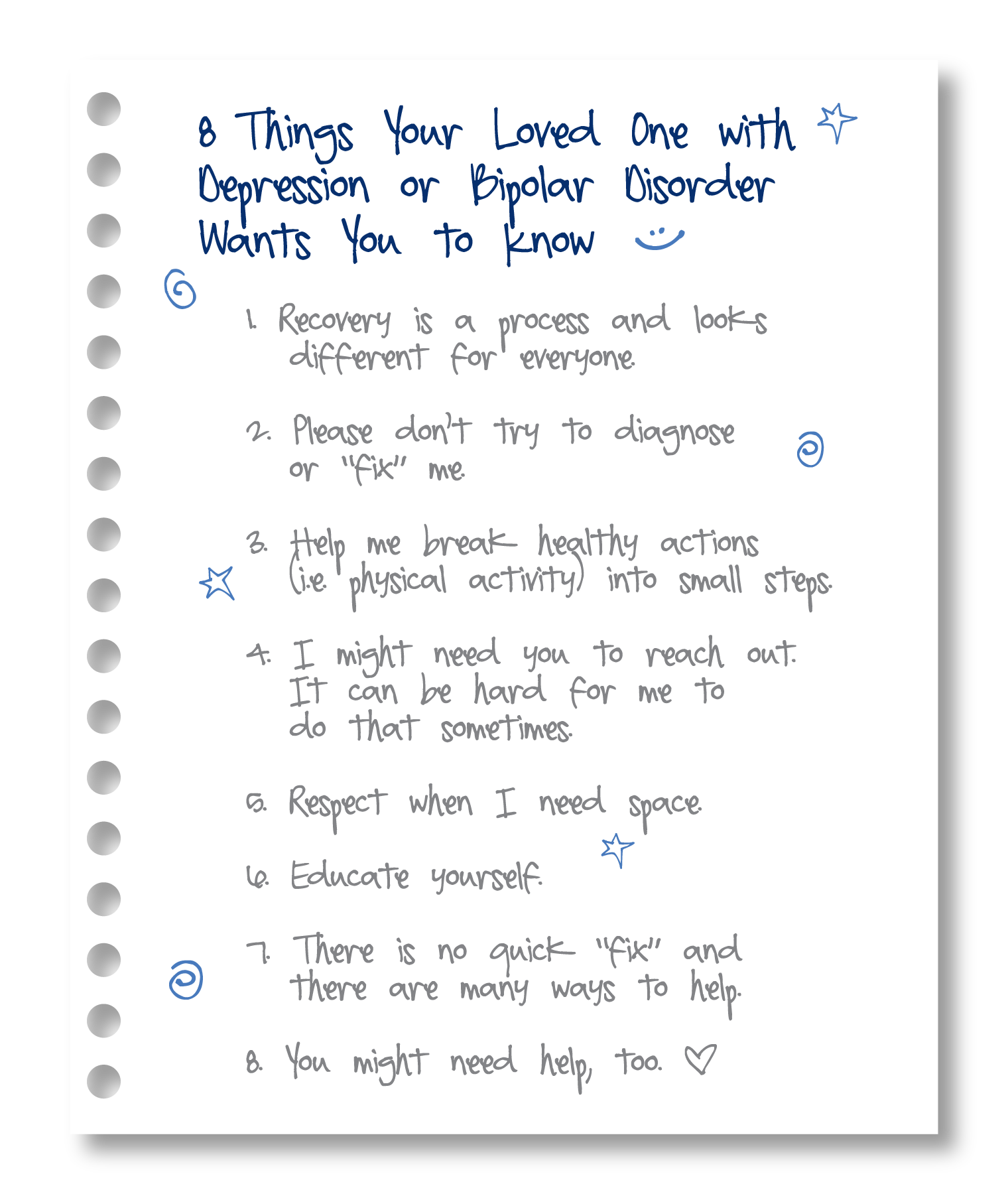As you care for a loved one who is struggling with their mental health, don’t forget to recognize your limits, set boundaries, and refer to professional help when needed. This process can be tough and sometimes heartbreaking for everyone involved. Create space to grieve the changes you’re seeing in your loved one, and know that it isn’t personal and that your own self-care is also important. It may not be emotionally easy, but it’s worth it.

Tips for supporting someone through severe symptoms of depression or bipolar disorder:
Mania, unlike hypomania, causes severe impairment in a person’s functioning. It can even result in a break from reality (psychosis) that could include hallucinations or delusions. Although everyone’s experience and recovery journey are different, here are three things you may expect when entering a conversation with a loved one in the midst of severe mania or psychosis:
This is true...
and yet, this is also true.
1. It will likely be hard to see your loved one struggling in this way, especially when you may not understand their experience or reality.
By staying calm, you can help reassure your loved one that you are here for them.
2. You likely won’t understand and you may not know what to say next.
That’s OK. By asking open-ended questions and listening in a non-judgemental way, you can reinforce your love and commitment to them and to their recovery.
3. You may feel defensive, frustrated or argumentative, and quick to deny their reality.
These are difficult feelings to process and that’s OK. Focus on validating the underlying fears and emotions your loved one is feeling, while striving to not make any judgments on a belief they’re expressing. Give yourself as much grace as possible, and if you feel defensive or argumentative, remind yourself that just because it isn’t your reality, that doesn’t mean it isn’t what they are feeling and believing.
Note: Signs of struggle vary. As friends, loved ones, and colleagues, our job is not to diagnose issues but to educate ourselves, pay attention to changes in behavior (i.e. changes in eating or sleeping patterns), and be there to support them along their journeys.

don’t gaslight a friend with depression or bipolar disorder
- Don’t try to “fix” the issue or rush to solutions.
- Seek first to understand instead of judging them.
- Hear them out before using your own experience to relate to them.
- Avoid saying it’s not that bad or “At least….”
- Use Active Minds’ easy V-A-R steps: Validate-Appreciate-Refer.


